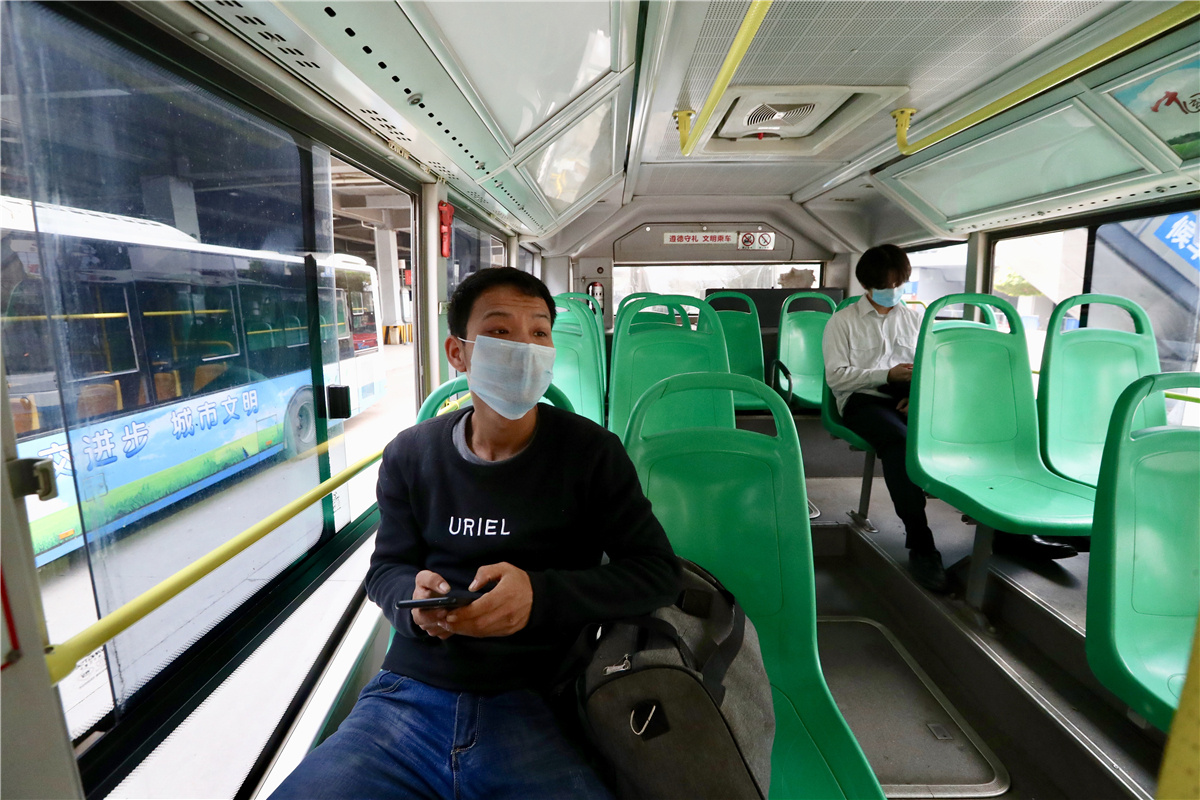
Wearing face masks, passengers sit on a bus at Wuchang Railway Station complex in Wuhan, Central China's Hubei province, on March 25, 2020. (Photo by Zhu Xingxin/chinadaily.com.cn)
Wuhan in Hubei province has taken a host of measures to prevent a resurgence of COVID-19 infections, the local government said on Thursday.
Inspections of cold-chain products — which public health experts believe constitute one of the largest risks to epidemic control in China — have been stepped up, said Zheng Yun, deputy director of the Wuhan Municipal Health Commission, during a news conference.
Since July 30, local regulators have tested over 250,000 food samples, including nearly 30,000 samples of frozen seafood.
Another testing campaign targeting cold-chain food covered about 29,000 batches of frozen seafood, 76,000 batches of frozen meat and over 187,000 environmental samples.
All test results returned negative, Zheng said.
In addition, travelers arriving in Wuhan from overseas will be placed under strict quarantine according to Yu Feng, deputy head of the city's foreign affairs office.
Yu said a special work force has been established to handle incoming travelers at the city's Tianhe Airport.
"Applications for resuming international flights are handled in batches and are based on the real-time epidemic situation and the city's virus control capabilities," he said.
Yu added international flights are scheduled to land with adequate intervals to avoid cross-infections between passengers.
"All incoming travelers in Wuhan will undergo 14-day medical observation at designated hotels and will not be released until their test results return negative," he said.
As of Wednesday, the task force stationed at the airport has handled over 180,000 people from overseas, according to the local transportation authority.
In terms of curbing local infections, Zheng said the city has enhanced closed-loop management at fever clinics, strengthened its epidemiologic investigation team and stocked sufficient medical supplies.
"The city is able to test over 200,000 nucleic acid samples each day," he said.


